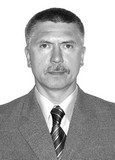Technologies for gamification of physical culture, recreation and sports activities in a virtual sports club
Ключевые слова:
gamification, virtual sports club, virtual technologies in training, sportization, virtual organization, mass sports.Аннотация
Objective of the study was to generalization of experience and transfer of knowledge of the theory of virtuality in the field of physical culture, recreation and sports activities, as well as the development of gamification technology for home training of children.
Methods and structure of the study. The research was conducted by synthesizing theoretical insights and practical expertise from virtual entities. The methods employed included: a review of scholarly and methodological literature, a content analysis and conceptualization, the application of gamification, the development of mobile app technology, and the utilization of neural networks.
Results and conclusions. Based on the examination of scientific literature, a comprehensive definition of a virtual school sports club is formulated, highlighting its key characteristics and content. A model of a virtual martial arts sports club named "Sokol" in Izhevsk, with an informal structure, has been developed. The paper describes the creation of a gamification application that enables the use of devices for physical education and sports activities, thereby enhancing the child's motivation and interest in training. These innovations are designed to enhance physical education and sports activities, improve children's physical fitness, and foster the development of children's associations.
Библиографические ссылки
Bychkova A.A., Potekhina E.V. Problemy sochetaniya formalnogo i neformalnogo v sotsialnoy organizatsii. Aktualnyye voprosy ekonomichskikh nauk, 2008. No. 2. pp. 11-15.
Dmitriev O.B., Sterkhov D.A. Konvergentsiya kontseptsii «sportizatsiya» i proyekta «shkolnyy sportivnyy klub» kak innovatsionnoye napravleniye v fizkulturno-sportivnoy sfere. «Sport, chelovek, zdorovye». Proceedings of the XI International Congress. St. Petersburg: POLITEKH-PRESS publ., 2023. pp. 477-479.
Kalenov O.E. Kharakteristiki i osobennosti virtualnykh organizatsiy. Vestnik REA im. G.V. Plekhanova, 2018. No. 5 (101). pp. 117-123.
Leynonen L.A. Osnovy teorii virtualnykh organizatsiy. Izvestiya SPbGEU, 2009. No. 1. 4 p.
Sudakov M.S., Kondrat A.O., Danilenko M.I. Virtualnyye organizatsii. Benefitsiar publ., 2019. No. 34. pp. 18-21.
Khromov I.E. Virtualnaya organizatsiya kak novaya organizatsionnaya forma upravleniya predpriyatiyem. Ekonomicheskiye nauki, 2018. No. 8 (165). pp. 65-69.
Churakov Yu.V. Ispolzovaniye neyrosetey v mobilnom prilozhenii dlya avtomaticheskogo otslezhivaniya fizicheskikh uprazhneniy. Tsifrovaya transformatsiya fizkulturnogo obrazovaniya i sfery fizicheskoy kultury i sporta. Proceedings of the All-Russian scientific-practical conference with international participation. Izhevsk: Udmurtskiy universitet, 2023. pp. 337-344.

Дополнительные файлы
Опубликован
Как цитировать
Выпуск
Раздел
Лицензия
Copyright (c) 2025 Theory and Practice of Physical Culture

Это произведение доступно по лицензии Creative Commons «Attribution» («Атрибуция») 4.0 Всемирная.
